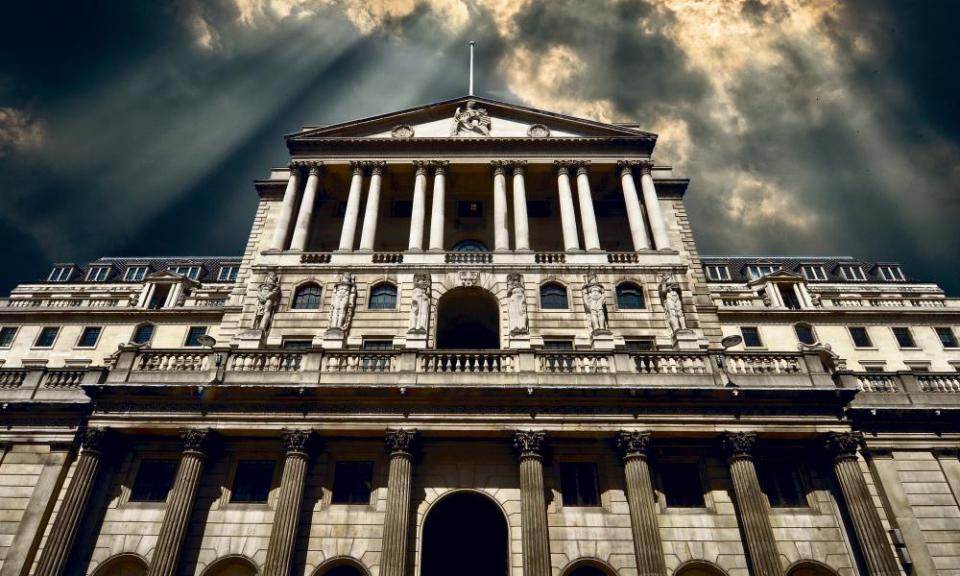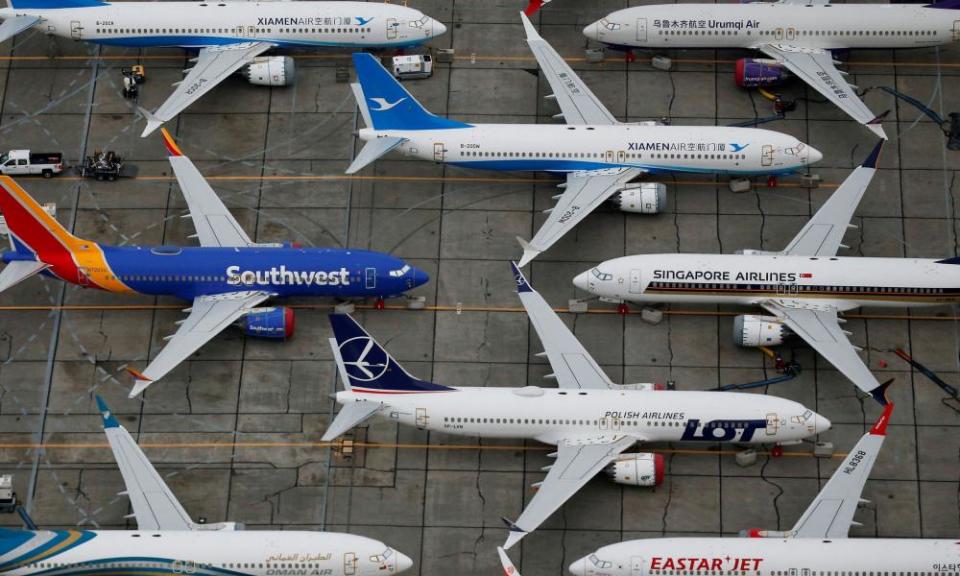So bank shareholders are squealing for their dividends. They should be ignored

Vaccines are on the way and economic Armageddon will be avoided (probably). So, since their capital buffers look strong, is it now time to allow banks to pay dividends again?
Dividend distributions were, in effect, suspended by the Bank of England in March when Covid descended on the economy. The vital priority was to keep credit flowing to households and businesses, which meant keeping capital within the financial system.
There was some token hissing from boardrooms but Threadneedle Street got its way: investors in banks were told they’d have to live without dividend rations until the end of 2020, at least, for the sake of general financial safety. European regulators acted similarly for eurozone banks.
In July, the Bank announced that it would review the ban by the end of the year, so the clock is ticking and the quiet lobbying has begun. In their latest sets of third-quarter results, the likes of Lloyds Banking Group, Barclays, NatWest and HSBC paraded their strong capital ratios and explained how their provisions for looming defaults were based on deeply conservative assumptions. In other words: this wasn’t a re-run of 2008-09, when thinly capitalised major lenders variously collapsed or were rescued by the state or their own shareholders.
And yes, it’s true that banks’ capital position is vastly improved. In Barclays’ case, its core ratio at the end of September was 14.6% – a full three percentage points above its regulatory minimum. And regulatory minimums, remember, have themselves been cranked up significantly since the bad old days.
Capital earmarked for dividends won't evaporate. If provisions are adequate, shareholders will get their cash eventually
So, in theory, shareholders’ grumble that regulators are making banks “uninvestable” by banning dividends has some force. Regular income is meant to be the main prize for owning bank shares. If the income doesn’t flow, goes the argument, you damage the investment appeal of banks and, in the end, make it harder for them to raise capital in a true crisis. Banks certainly look like unpopular investments right now: Lloyds’ share price was 60p immediately before the pandemic; it is 38p now, and dipped as low as 25p in September.
So should the Bank sound the all-clear and grant the clear wish for dividends?
The answer is no. The dividend ban was a precaution against an economic emergency – and we still don’t know how bad the emergency will be.
Progress with vaccines has been extraordinary but nobody, apart from the admirable volunteers for the pharmaceutical companies’ trials, has been vaccinated yet. The logistical challenge of giving jabs to millions of people in the general population is immense. Will normal economic life resume by next summer, next autumn, next winter or sometime in 2022?
The uncertainties make it hard to assess the real size of the bad loans coming down the track for banks. Provisioning models assume severe falls in house prices, sharp increases in unemployment and so on, but it’s still early days and we don’t know what will happen when the props the Treasury has put under the economy are removed. The £400bn-ish increase in public sector debt this year is likely to mean the scale of the economic misery only emerges once the virus has passed.
As for the “uninvestable” argument, it’s beguiling but wrong. Capital earmarked for dividends does not evaporate if it is retained. If provisions prove adequate, shareholders should get their cash eventually. Investors today can still take a view on the odds.
The Bank should opt for prudence and leave the dividend ban in place for the time being. At the very least, it should wait until we know lockdowns are no longer required. This is still a moment for caution.
Clamour for low fares may drown out fears about the 737 Max
Finally, things are on the up for Boeing and the airlines that staked their fortunes on its 737 Max aircraft. The plane described as a “flying coffin” in a US Senate inquiry has been certified safe again, and could be flying by new year.
Airlines that were attracted by its fuel efficiency and potential extra profits are more anxious than ever for any marginal gain. Ryanair will be the first in Europe to take fresh deliveries, and chief executive Michael O’Leary, with customary tact, has continued to trumpet the savings from the “gamechanging” plane he ordered. It is as if the intervening years had seen nothing other than technical delays, rather than two catastrophic, avoidable crashes that took 346 lives.
It remains to be seen what kind of PR job may be needed to reassure the public. O’Leary has always maintained that a cheap fare outweighs bad publicity, and proved it when his bargain flights lured thousands of passengers to hitherto uncherished locations.
Riskier is the kind of pledge repeated last week by Steve Dickson, head of US regulator the FAA: he put his family on the line by saying he would be comfortable seeing them aboard a 737 Max.

That tactic was memorably pioneered by John Gummer, agriculture minister in the 1980s British Conservative government. Four decades on, the image of him feeding a burger to his four-year-old daughter Cordelia is a vivid reminder of something nasty possibly lurking in beef, when fears over BSE itself are long forgotten.
Doubtless Boeing’s publicists will know better than to ever parade the Dickson family on the steps of a 737 Max. Airline bosses anyway believe the model of aircraft in question will soon be once again a question only for enthusiasts or geeks; and that cheap Max flights, like cheap burgers, will be swiftly gobbled up.
BMW’s investment in a UK factory is good news and bad
In normal times, the announcement of extra work for a UK factory might be seen as a victory for workers. But these are not normal times for the car industry, and BMW’s decision to move more engine production to its Hams Hall factory in the West Midlands should be treated with caution.
The German carmaker will start producing new electric cars at its main Munich factory by 2024, and will increase production of traditional internal combustion engines at Hams Hall and at one other plant, in Austria.
Even discounting the effects of the pandemic, the UK car industry faces a tumultuous few years, with Brexit and the move to electric vehicle production looming. The way things will go in the UK was made even clearer by this week’s news of a sales ban on pure fossil-fuel cars after 2030.
In this context, it is a disappointment to see BMW’s investment in new technologies go exclusively to Germany: the Hams Hall plant has experience with hybrid technology, combining internal combustion with batteries.
All hope is not lost. European and Japanese carmakers clearly value their existing UK factories, including BMW’s production of the electric Mini in Oxford. The choice to move more production to Hams Hall shows that the UK still has top-class automotive capabilities, and the extra work will help see workers through potential Brexit disruption or a dragged-out pandemic recovery.
However, a degree of scepticism is not the same as looking a gift horse in the mouth. Extra work now is all very well, but carmakers know their future is electric. Missing investment now isn’t the end of the world, but if the missed opportunities mount, it will spell eventual trouble for the UK automotive sector.
BMW has described the move as “systematically gearing its main plant in Munich towards the future”. It also leaves its UK operations focused on technology that will soon be in the past.

 Yahoo Finance
Yahoo Finance 